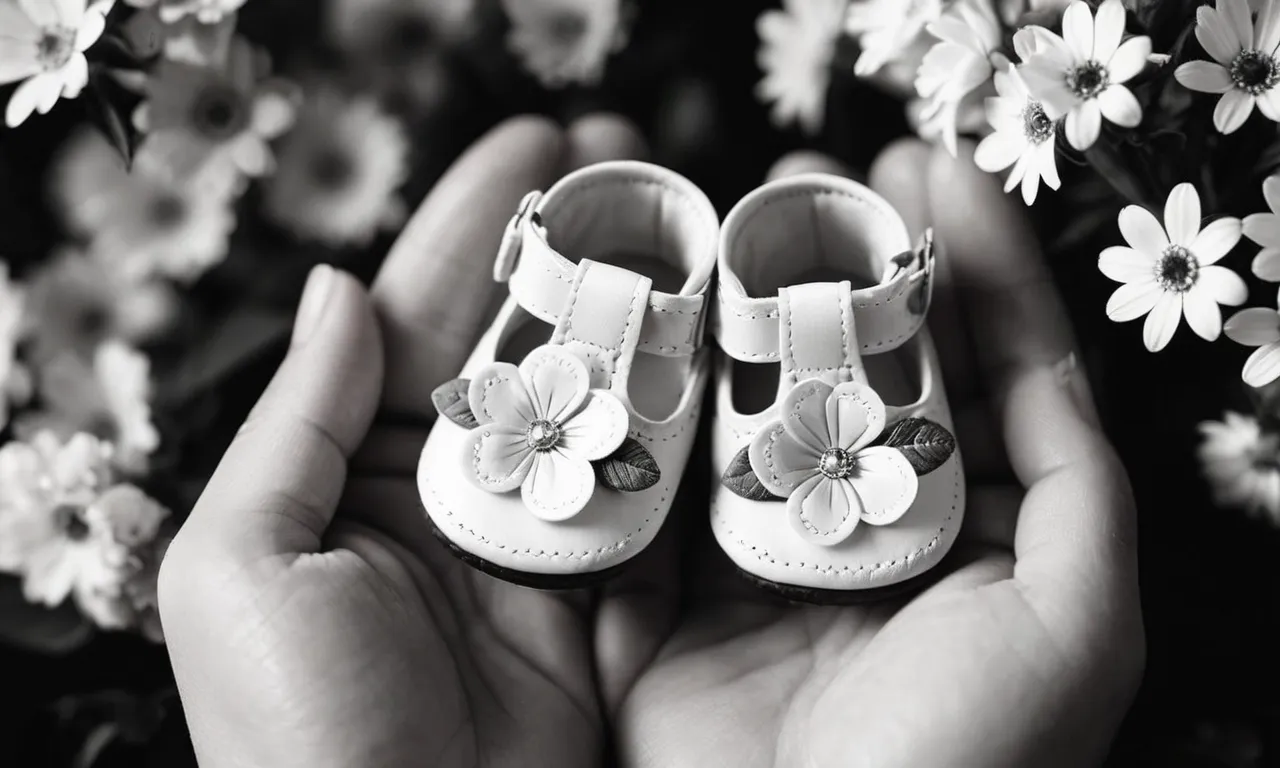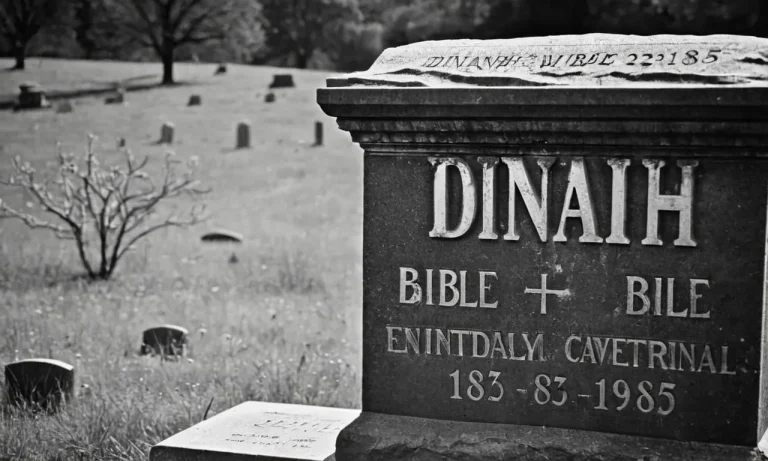What Does The Bible Say About Babies Dying In The Womb?
The loss of a baby in the womb is a deeply painful experience that leaves many wondering what the Bible has to say about life in the womb and why some babies pass away before having a chance at life outside the womb.
If you’re short on time, here’s a quick answer: The Bible does not specifically address why some babies die in the womb, but it makes clear that every human life, including that of unborn babies, has value and purpose in God’s eyes.
In this comprehensive article, we will examine key Bible passages about life in the womb, reasons for infant loss according to Scripture, and God’s care and promises regarding babies who pass away before birth.
The Bible Affirms the Humanity of the Unborn
Key Passages About Life in the Womb
The Bible contains several key passages that reveal God’s view of unborn life in the womb. Here are some of the most significant ones:
- “Before I formed you in the womb I knew you, before you were born I set you apart” (Jeremiah 1:5). This shows God’s intimate involvement in forming and calling each person even before birth.
- “For you created my inmost being; you knit me together in my mother’s womb” (Psalm 139:13). God is intimately involved even at the earliest stages of embryonic development.
- “When Elizabeth heard Mary’s greeting, the baby leaped in her womb” (Luke 1:41). The unborn John the Baptist is recognized as a “baby” with reactions of joy.
These and other passages reveal that God recognizes unborn babies as human persons bearing His image. He is personally involved in forming each one with loving care and purpose.
Old Testament Examples and Laws Protecting the Unborn
In the Old Testament, causing the death of an unborn child was seen as a serious wrong. Some examples:
- Exodus 21:22-25 gave penalties for causing accidental injury to a pregnant woman or her child. This showed that the child had legal protections.
- Genesis 25:21-22 describes Rebekah’s children “struggling together within her.” They are seen as distinct persons before birth.
- In 2 Kings 15:16, King Menahem is condemned for ripping open pregnant women in military conquests. This shows the evil of willfully killing the unborn.
God’s law is designed to protect the innocent. It consistently treats unborn life as just as precious as born life. This affirms the unborn child’s full humanity from the earliest stages.
| Biblical Passage | Key Point |
|---|---|
| Psalm 139:13-16 | God actively forms each unborn baby with loving care. |
| Luke 1:41-44 | Unborn John the Baptist is called a “baby” who leaps for joy. |
| Exodus 21:22-25 | Causing unborn baby’s death incurred serious penalty. |
Reasons for Infant Loss in Scripture
The Fall and the Entrance of Sin and Death
According to the Bible, death entered the world as a consequence of the fall and the entrance of sin (Genesis 3). When Adam and Eve disobeyed God in the Garden of Eden, sin corrupted God’s perfect creation. As a result, humanity became subject to sickness, pain, and death.
This includes the sorrowful reality of miscarriage, stillbirth, and infant loss. Though infants are innocent, the effects of the fall impact all people. Yet Scripture promises that one day God will undo the curse of death and restore his creation (Revelation 21:4).
God’s Sovereignty Over Life and Death
The Bible affirms that God is sovereign over the womb and human life. He forms each child and knows them intimately (Psalm 139:13-16). Though the reasons are often a mystery, Scripture testifies that God also determines the life span of every person (Job 1:21).
This means that God allows some babies to live just a short time. His ways and thoughts are higher than ours, so we may struggle to understand his purposes (Isaiah 55:8-9). Yet we can trust the goodness of God, even in the face of sorrow.
He promises to be with those who grieve and carries little ones into his presence (Matthew 18:10).
Suffering and the Problem of Evil
The death of a baby raises difficult questions about why a good God allows innocent suffering. Though we cannot fully comprehend God’s ways, Scripture points to the redemptive purposes of a sovereign God amid suffering.
God does not delight in death (Ezekiel 33:11), yet he is able to bring comfort and purpose out of tragedy (2 Corinthians 1:3-4). The resurrection of Jesus provides hope that one day every tear will be wiped away and death itself overcome (Revelation 21:4).
Until then, God calls Christians to be his hands and feet – providing care and support in times of loss.
God’s Care for Babies Who Pass Away
Babies Are Precious in God’s Sight
The Bible tells us that human life is sacred because we are made in the image of God (Genesis 1:27). This includes babies in the womb who are formed by God in their mother’s womb (Psalm 139:13-16). Even from conception, babies are precious human beings who reflect the wonder of God’s creative work.
Jesus showed special compassion for little children, welcoming them into his arms and blessing them (Mark 10:13-16). This reveals God’s tender love for the youngest and most vulnerable among us. Babies who pass away in the womb or at birth are not forgotten by God.
God’s Promise of Eternal Life
Though the loss of a baby brings deep grief, God promises eternal life to all who believe in Jesus Christ. King David was comforted knowing that one day he would go to be with his baby son who had died (2 Samuel 12:23). Those who trust in Christ can have the same hope of resurrection and reunion.
Jesus said, “Let the little children come to me” (Matthew 19:14). This promise offers comfort to grieving parents, as their children have been gathered safely into the arms of Jesus in heaven.
God’s great love was demonstrated when Jesus died for the sins of the world – including little ones who are unable to believe on their own (Romans 5:18). This secures their place in eternity with God.
Hope for Grieving Parents
The deep bond between parent and child begins even before birth. So the loss of a baby, whether in miscarriage, stillbirth, or infant death, is profoundly painful. Grieving families need compassion and support from their church community.
God draws near to those who mourn (Psalm 34:18, James 4:8). Through Scripture, prayer, counseling, and fellowship, grieving parents can find their hope in God restored. He promises that one day He will “wipe away every tear” (Revelation 21:4).
That day offers comfort and anticipation for those who have lost a baby.
While grieving is necessary, those who hope in Christ can face even this painful loss with confidence in God’s loving purposes. They can know that their little one is safe with the Heavenly Father and find hope in the promise of eternal life together.
Conclusion
The grief of losing a baby in the womb is deep and painful. While the Bible does not give direct answers as to why some babies pass away before birth, Scripture makes clear that God forms and knits together each life in the womb, that He has planned out each person’s days before one of them came to be, and that He entrusts the souls of all deceased infants into the hands of Jesus.
For Christian parents mourning the loss of a baby, we can find hope and peace in knowing that God cares intimately for each little one He calls home, even before birth and independent of the stage of development.
We can trust all unborn babies into the gracious love and compassion of our Heavenly Father as we look forward to a joyous reunion in eternity.








